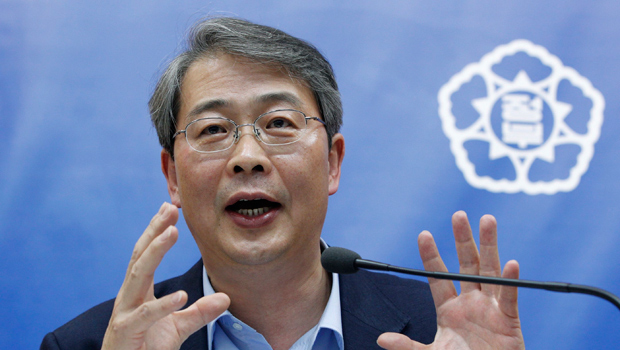The authorities, alarmed by the won's sharp swings during recent market turbulence caused by Europe's debt problems, have been priming investors for weeks for action aimed at stabilizing its currency and cooling overseas borrowing.
The well-flagged new restrictions slap limits on banks' and other financial institutions' currency forward, cross-currency swaps as well as non-deliverable currency forward.
"These measures are aimed at reducing the volatility in capital flows that poses a systemic risk in the country," South Korea's Finance Ministry, two financial regulators and the central bank said in a joint statement.
The new rules will cap domestic banks' and non-bank financial institutions' currency forward and derivatives at 50 percent of their equity capital. The cap for foreign bank branches was set at 250 percent of equity to account for their lower capital, which on average is just 1/30 of that held by domestic banks.
Officials brushed off suggestions that the regulations, which follow liquidity controls and curbs on companies' currency trades announced in November, could hurt investor confidence.
"We will stick to a principle of an open market and liberalization of capital transactions. That is a promise we have globally made. We expect foreigners to invest more in the longer term thanks to reduced volatility," Deputy Finance Minister Yim Jong-yong told a news briefing.
Officials said the new rules were, in fact, a part of a worldwide effort to better regulate financial institutions to avoid a repeat of the global financial crisis that pushed the world's economy into its deepest recession since the 1930s.
Seoul also argues that Asia's fourth-largest economy has special reasons to act as it is more exposed to market gyrations than its peers because of its high short-term foreign debt.
The debt is equivalent to 60 percent of foreign reserves — nearly twice the ratio in Indonesia or Malaysia — and largely reflects an imbalance in the forward market caused by heavy dollar selling by shipbuilders and other big exporters.
This drives down the cost of obtaining dollars, encouraging financial markets players, both foreign and local to borrow dollars and use the proceeds to buy South Korean assets.
In addition, banks dealing with exporters borrow dollars to balance their positions, which additionally exposes South Korea to a sudden dollar squeeze, similar to that which followed the collapse of Lehman Brothers in September 2008.
Bankers said the authorities may succeed in somewhat curbing short-term dollar borrowing, but the controls may backfire when it comes to their ultimate goal — limiting sharp market swings.
"The measures may cause market volatility to rise further in the near term. Doing arbitrage trade in South Korea will be unprofitable to foreign banks and they may move it out of South Korea," a head of a foreign bank branch in Seoul said.
Figures provided by authorities showed the new curbs, that have yet to be signed off by a presidential committee on regulatory reforms and are expected to come into force in October, would mainly affect foreign bank branches.
While average domestic banks' currency positions were at comfortable 15.6 percent of equity capital, the exposure of foreign bank branches stood at just above 300 percent.
Banks will have up to two years to comply fully with the new limits and Yim said that grace period could be even extended in some cases. However, those who failed to meet agreed limits would be punished with reduced limits.
In another effort to calm markets, the authorities said they were ready to help if the new controls provoked excessive short-term market swings.
The won, pressured by talk of imminent controls, suffered four consecutive weekly losses, but ended Friday's trade slightly higher in a sign that markets have largely discounted the new regulations. Traders had expected limited market reaction on Monday assuming banks would be given enough time to adjust to new rules.
In addition to curbs on currency trades for banks, the authorities tightened the limits on companies' currency derivatives trades announced in November, lowering the ceiling to 100 percent of the value of their physical foreign trade transactions from the initial 125 percent.
The central bank will also take steps next month to limit foreign-currency lending by banks to local companies by allowing such lending only to finance documented deals with foreign entities.










